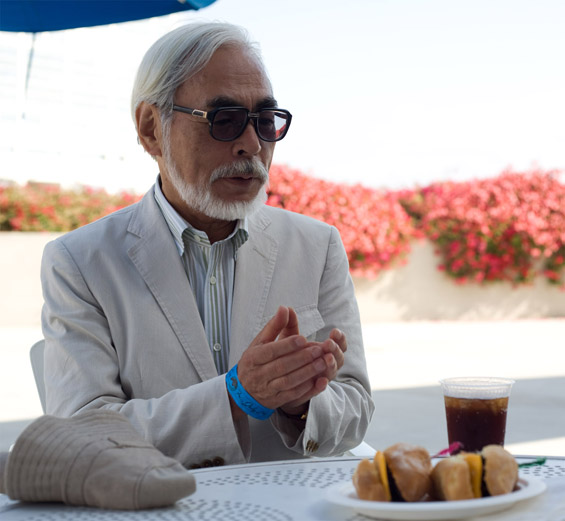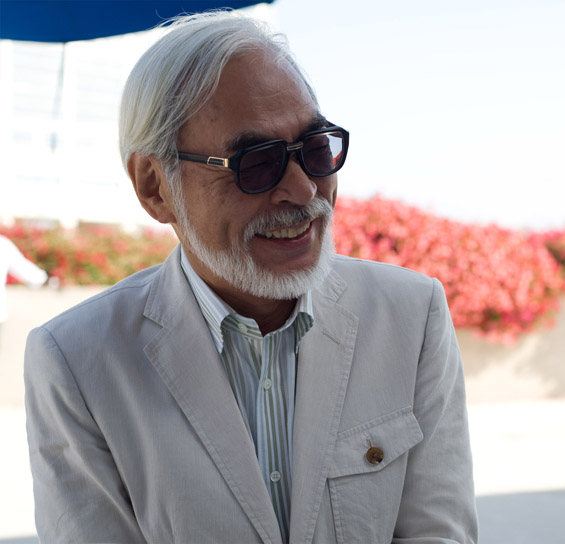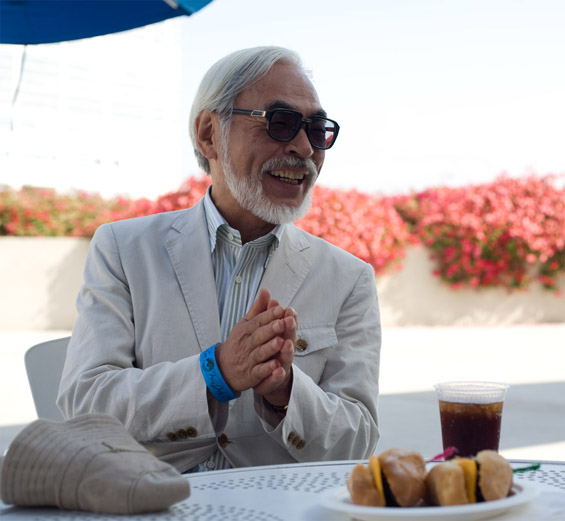Hey folks. Capone in Chicago here, with another interview I picked up at Comic-Con this year. This particular talk came after Disney Animation Studios/Pixar's lengthy panel (hosted by John Lasseter), in which they previewed the TOY STORY 1 & 2 3-D double-bill trailer; some great stuff from TOY STORY 3 (also in 3-D), including the introduction of short film on a new character introduced in this film, Barbi's pal Ken (voiced by Michael Keaton). In the short "documentary" on Ken, he attempt to convince us that Ken is a doll for boys and not girls. It was a hilarious way to show us Keaton's enthusiastic approach to the character, and I can't wait to see the scene in which Ken realizes he's gay (assuming that scene is in TS3).
We also got to watch an entire musical number (centered around the song "Belle") from the BEAUTY AND THE BEAST 3-D reissue, set for release in February. One of the more impressive surprised of the panel was footage from a Disney animated special done for ABC and scheduled to run around the Christmas holiday. "Prep and Landing" is about an elite group of elves that break into homes and prepare each one for Santa's arrival. The sequence we were shown was hilarious, as the elves use high-tech gadgets to make sure all is right, including a device that trims the bottom of the tree to make sure the gifts fit and a temperature gauge to test the chill of the mild and the warmth of the cookies. This is one worth looking forward to.
The next to last film discussed was the first new traditionally animated feature film from Disney in quite some time, and the first full-blown musical the studio has done in about as long. THE PRINCESS AND THE FROG takes the age-old "Frog Prince" story and transports it to New Orleans during the Jazz Age of the 1920s. We got to see an entire musical number, featuring Keith David as the villainous Dr. Facilier. All of the tunes are from Randy Newman, and the film is directed by Ron Clements and John Musker (co-directors of THE LITTLE MERMAID, ALADDIN, and HERCULES). What we saw was really strong stuff, so my hopes are high for this December 11 release.
The panel concluded with a rare stateside appearance of the man who animators in the world look to for inspiration, Hayao Miyazaki, the great Japanese artist, who at 68 years old, is still putting out the most relevant and creative works of anyone, anywhere. He still writes his films as storyboards, rather than scripts, and usually has no idea where his plots are going or what his characters are going to look like until he's actually drawing them. Seriously, most animation houses can't even fathom a human being that works this way, but that is how Miyazaki-san has always worked and will continue to do so until he simply can't. If you haven't ever seen one of his films, just pick one; they're all good--THE CASTLE of CAGLIOSTRO; NAUSICA; CASTLE IN THE SKY; MY NEIGHBOR TOTORO: PORCO ROSSO; KIKI'S DELIVERY SERVICE; PRINCESS MONONOKE; SPIRITED AWAY; and HOWL'S MOVING CASTLE.
I was fortunate to meet and interview some of my absolute favorite directors at this year's Comic-Con (including Peter Jackson, Tim Burton, and Chan-wook Park), but none meant more to me than Miyasaki. We spoke with the help of his very nice translator to this understated, quiet-spoken master of the pencil and ink. His new film is called PONYO, a sweet tale about a goldfish that wants to become human, and it's another magnificent and awe-inspiring visual feast that ought not to be missed. Please enjoy Miyasaki-san.



-- Capone
capone@aintitcoolmail.com
Follow Me On Twitter




